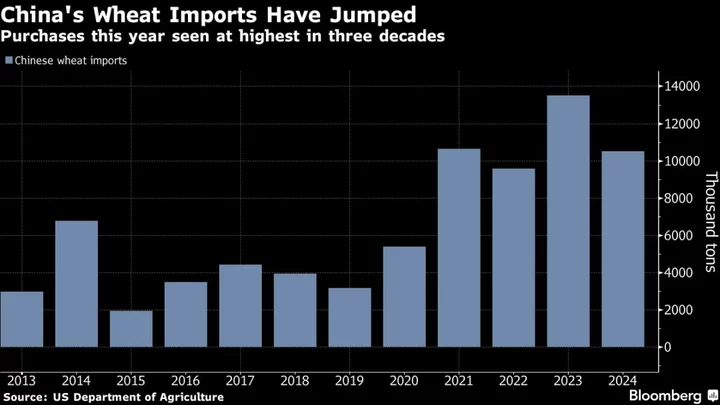China will feed a lot more of its domestic wheat crop to hogs and poultry this year after heavy rains reduced the quality of the harvest in the biggest growing region, boosting prospects for imports.
The amount of wheat consumed in animal feed is likely to increase by 10 million tons to about 35 million tons in the year starting in July, with a large volume consisting of sprouted grain, according to the latest forecast from Shanghai JC Intelligence, a China-based commodity consultancy.
The loss of high-quality wheat could increase demand for imports, with JC Intelligence raising its estimate by 1 million tons to just over 9 million tons in the coming year. Chinese buyers booked some Canadian wheat last week, and are actively making inquiries for more grain, according to traders, who asked not to be identified because they’re not authorized to speak publicly.
“Companies are expected to import more because it’s profitable, though the country’s huge stockpiles mean it doesn’t need to purchase much,” said Ma Wenfeng, a senior analyst at BOABC, a Beijing-based agriculture consultancy. “If there are a lot of imports, it will weigh on prices and hurt farmers, which is not good for food security,” Ma said.
The consultancy predicts that the amount of wheat used for feed in the coming year will more than double to 27.5 million tons from 11.4 million tons a year earlier, according to its latest report. The country is expected to produce 140 million tons in the 2023-24 year, US Department of Agriculture data show.
Wheat prices in Henan, the top producing province, fell to 18-month lows in the middle of May. They have since risen as much as 6% following the rains.









